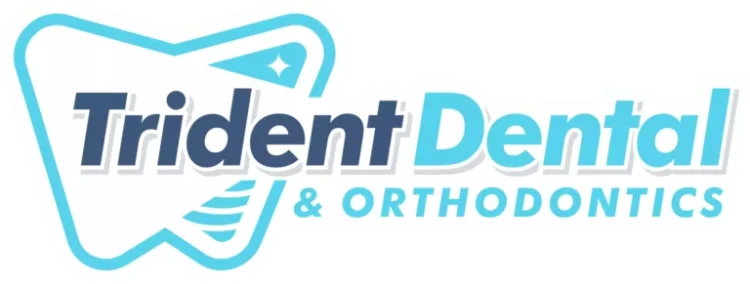Proper dental care begins even before the teeth have erupted through the gums, and it continues throughout your entire lifespan. Sadly, several factors work against you, including the warm, moist environment in your mouth — the perfect breeding ground for bacteria that can lead to gum disease, tooth decay and loss, and even heart disease. But a few healthy habits can prevent these common dental problems.
At Trident Dental in Houston, Texas, our experienced team partners with you to maintain your oral health and treat any problems that may arise, whether you have crooked teeth, gum disease and tooth decay, missing teeth, cavities, or dental-related sleep apnea.
To prevent many of these problems, regular dental exams and cleanings are a great way to ensure your teeth get a proper deep cleaning twice a year and an all-important checkup where we can detect and treat any dental issues early.
But truly healthy teeth are the product of diligent at-home care day in and day out. Here are 10 habits and tips you can adopt to give your teeth the best chance for a long and healthy life.
1. Brush the right way
Brushing your teeth is one of the most basic ways to keep your teeth clean, but doing it incorrectly can harm them. The proper technique is:
- Use a soft brush at a 45-degree angle to your gums
- Brush all the surfaces: outer, inner, and chewing
- Use gentle, short, back-and-forth strokes
- Behind front teeth, use up-and-down strokes
- Replace your toothbrush every three months
For maximum benefit, brush for two minutes twice a day.
2. Brushing before bed is most important
Throughout the day, bacteria, germs, and plaque build up on the surface of your teeth. If you flop into bed without brushing, those nefarious substances multiply and attack your teeth and gums, causing cavities, infection, and decay.
3. Toothpaste type matters
Toothpaste choices span an entire aisle at most drugstores these days, and products carry claims from all-natural to hyper-brightening to super-sensitive. The most important word to look for on your toothpaste label is “fluoride,” because it’s your best defense against decay, and it forms a barrier between bacteria and your teeth.
4. Brush your tongue
While we’re still on the topic of brushing, let’s talk about your tongue. This soft, textured muscle harbors countless bacteria and provides yet another surface area for plaque buildup, both of which lead to bad breath. So while you’re brushing, make a few passes of the bristles across your tongue.
5. Floss at least once a day
Most people reach for some dental floss when they feel a popcorn husk or strawberry seed caught in their teeth, but only 16% floss at least once a day. Those who don’t, miss an important opportunity to remove the sticky plaque that accumulates between teeth and causes cavities and gum infections.
6. Swish with water
To whisk away food particles, bacteria, and extra acid, we recommend taking a swig or two of water after every meal and swishing it around in your mouth a few times before you swallow.
7. Cut back on acid and sugar
Speaking of acid, it’s one of the most harmful substances you can eat — at least as far as your teeth are concerned. Citrus fruits and juices as well as coffee and tea can erode the protective enamel on your teeth. And sugar converts into acid in your mouth.
8. Eat more veggies and fruits
A diet that includes plenty of fresh fruits and veggies is a great way to maintain your overall health, but your teeth appreciate them because they’re hard and crunchy. Your jawbone, in particular, thrives on the pressure applied everytime you chew, and the rough texture helps clean the surface of your teeth.
9. Mouthwash may help
Mouthwashes in general aren’t a necessary part of oral hygiene, but in some cases, they may serve as an effective aid. Elderly people, children, and those with injuries or physical disabilities who tend to “miss a spot” or brush inefficiently may benefit from a mouthwash that kills bacteria in hard-to-reach places and neutralizes acids.
10. Check out your mouth
It’s a good idea to periodically examine your own mouth for signs of problems, such as redness, swelling, bleeding, darkened teeth, sores, or anything else that looks amiss. Although some oral problems come with pain, some are asymptomatic, so get to know what’s normal for you so you can spot a problem early and come in for an evaluation.
To learn more about how to properly care for your teeth so they last a lifetime, contact us by phone or online to schedule an appointment with one of our experienced dental professionals.

